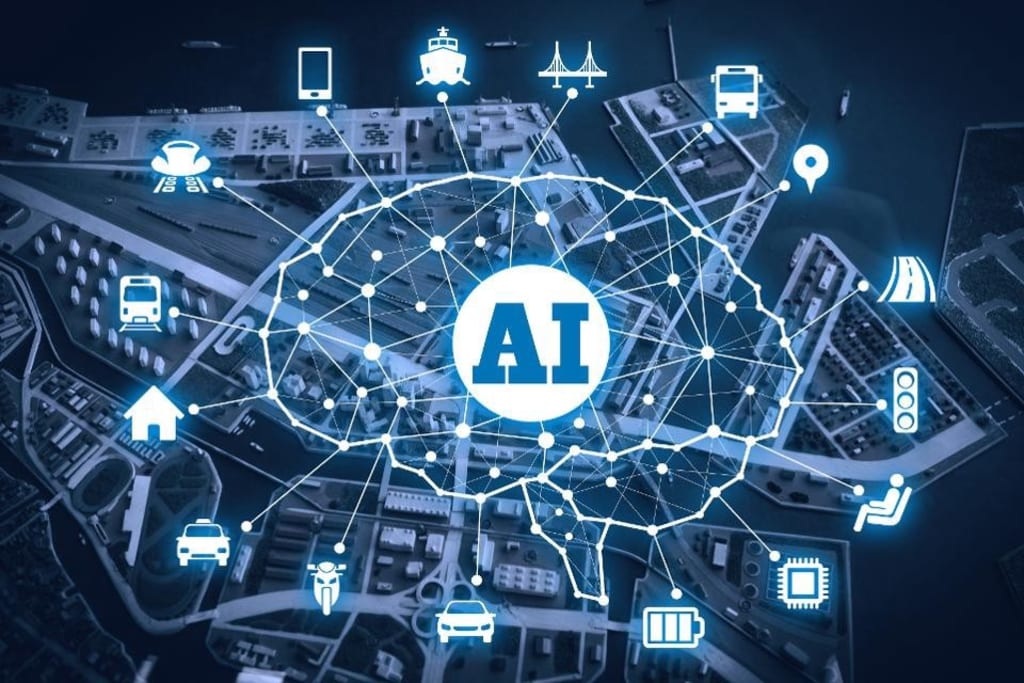The Impact of Artificial Intelligence on Job Markets: Threat or Opportunity?
Navigating the Future of Work in an AI-Driven World

Artificial intelligence (AI) is transforming industries, reshaping economies, and altering the landscape of the job market. As AI technologies advance, they bring both potential benefits and challenges. The impact of AI on employment is multifaceted, sparking debates on whether it poses a threat to job security or offers new opportunities for growth and innovation.
The Threat: Job Displacement and Automation
One of the most significant concerns regarding AI is its potential to automate tasks traditionally performed by humans, leading to job displacement. Automation powered by AI can perform repetitive and routine tasks more efficiently and accurately than humans. Industries such as manufacturing, transportation, and customer service are particularly susceptible to this shift.
For instance, autonomous vehicles could disrupt the transportation sector by replacing drivers, while AI-powered chatbots and virtual assistants might reduce the need for human customer service representatives. The World Economic Forum predicts that by 2025, machines will handle more than half of all workplace tasks, potentially displacing millions of jobs.
The impact of AI-driven automation is not limited to low-skilled jobs. Even white-collar professions, such as accounting, legal services, and healthcare, are experiencing automation. AI systems can analyze vast amounts of data, identify patterns, and make decisions, encroaching on tasks previously thought to require human intelligence and expertise.
This potential for widespread job displacement raises concerns about economic inequality and social stability. Workers in sectors vulnerable to automation may face unemployment or need to transition to new roles, requiring retraining and upskilling. The fear of job loss can lead to resistance against AI adoption, slowing technological progress and economic growth.
The Opportunity: Job Creation and Transformation
Despite the threats, AI also presents significant opportunities for job creation and transformation. While AI may displace certain jobs, it can also generate new roles and industries. Historically, technological advancements have led to the creation of more jobs than they have eliminated, and AI is expected to follow this trend.
AI can augment human capabilities, enabling workers to focus on higher-value tasks that require creativity, critical thinking, and emotional intelligence. For example, in healthcare, AI can assist doctors by analyzing medical images and data, allowing them to concentrate on patient care and complex decision-making. Similarly, AI can help educators personalize learning experiences, improving student outcomes and teacher effectiveness.
Moreover, the AI industry itself is a burgeoning field, creating demand for new skills and expertise. Roles such as AI specialists, data scientists, machine learning engineers, and ethical AI advisors are emerging, requiring specialized knowledge and training. These positions offer lucrative career opportunities and are less susceptible to automation.
AI also drives innovation and economic growth by enabling new business models and enhancing productivity. Companies can leverage AI to optimize supply chains, improve customer experiences, and develop new products and services. This innovation can stimulate job creation across various sectors, from technology and finance to healthcare and retail.
Navigating the Transition: Strategies for the Future
To harness the opportunities presented by AI while mitigating its risks, a multifaceted approach is essential. Governments, businesses, and educational institutions must collaborate to navigate this transition effectively.
1. Education and Training: Investing in education and training is crucial to prepare the workforce for the AI-driven future. This includes updating curricula to include AI-related subjects, promoting STEM (science, technology, engineering, and mathematics) education, and providing lifelong learning opportunities. Workers need to develop skills that complement AI, such as complex problem-solving, creativity, and emotional intelligence.
2. Social Safety Nets: Strengthening social safety nets can help protect workers displaced by AI. This includes unemployment benefits, job transition assistance, and retraining programs. Policies such as universal basic income (UBI) and wage subsidies are also being explored to provide financial security during periods of job transition.
3. Ethical AI Development: Ensuring that AI is developed and deployed ethically is critical to building trust and preventing negative societal impacts. This involves creating frameworks for transparency, accountability, and fairness in AI systems. Governments and organizations should establish regulations and guidelines to prevent bias, discrimination, and misuse of AI technologies.
4. Collaboration and Partnerships: Public-private partnerships can drive AI innovation and workforce development. Businesses can collaborate with educational institutions to design relevant training programs and provide internship opportunities. Governments can incentivize companies to invest in AI research and development while ensuring that the benefits are widely shared.
Conclusion
The impact of AI on the job market is complex, presenting both threats and opportunities. While AI-driven automation may displace certain jobs, it also has the potential to create new roles, enhance productivity, and drive economic growth. Navigating this transition requires proactive strategies, including education and training, social safety nets, ethical AI development, and collaborative efforts. By embracing these measures, society can harness the power of AI to create a more prosperous and inclusive future.
About the Creator
Pavitradevi
I'm Pavitradevi S, a passionate writer and lifelong learner dedicated to exploring the world through insightful and engaging articles. My writing journey spans across technology, health, personal development, and economy related .
Enjoyed the story? Support the Creator.
Subscribe for free to receive all their stories in your feed. You could also pledge your support or give them a one-off tip, letting them know you appreciate their work.






Comments
There are no comments for this story
Be the first to respond and start the conversation.